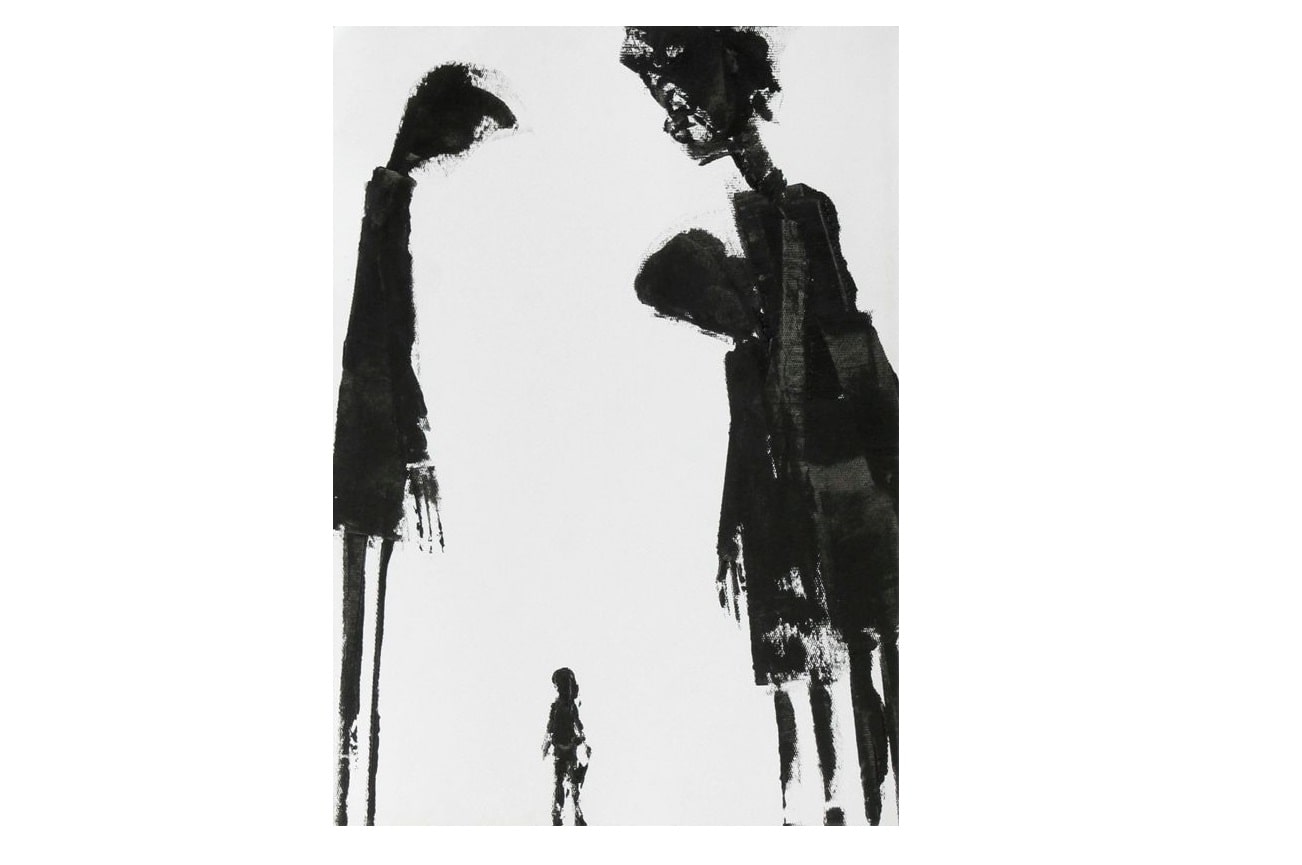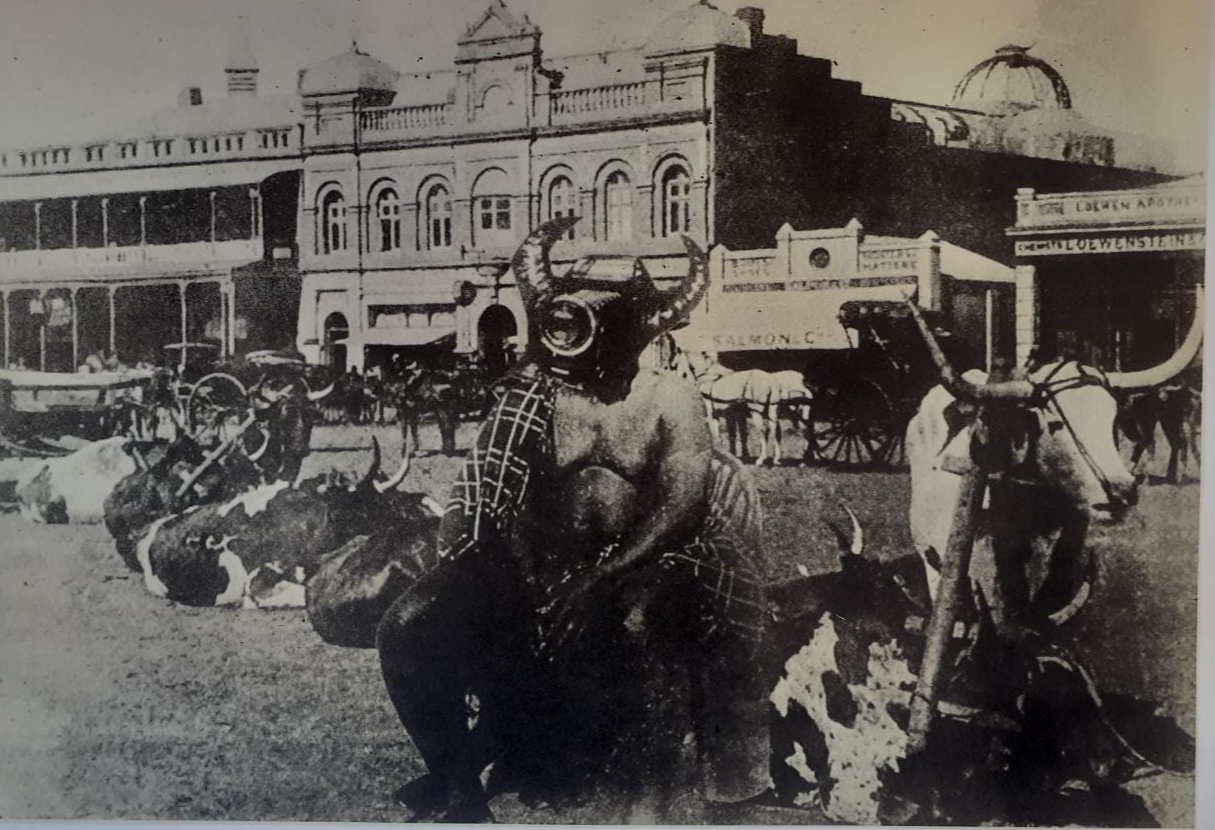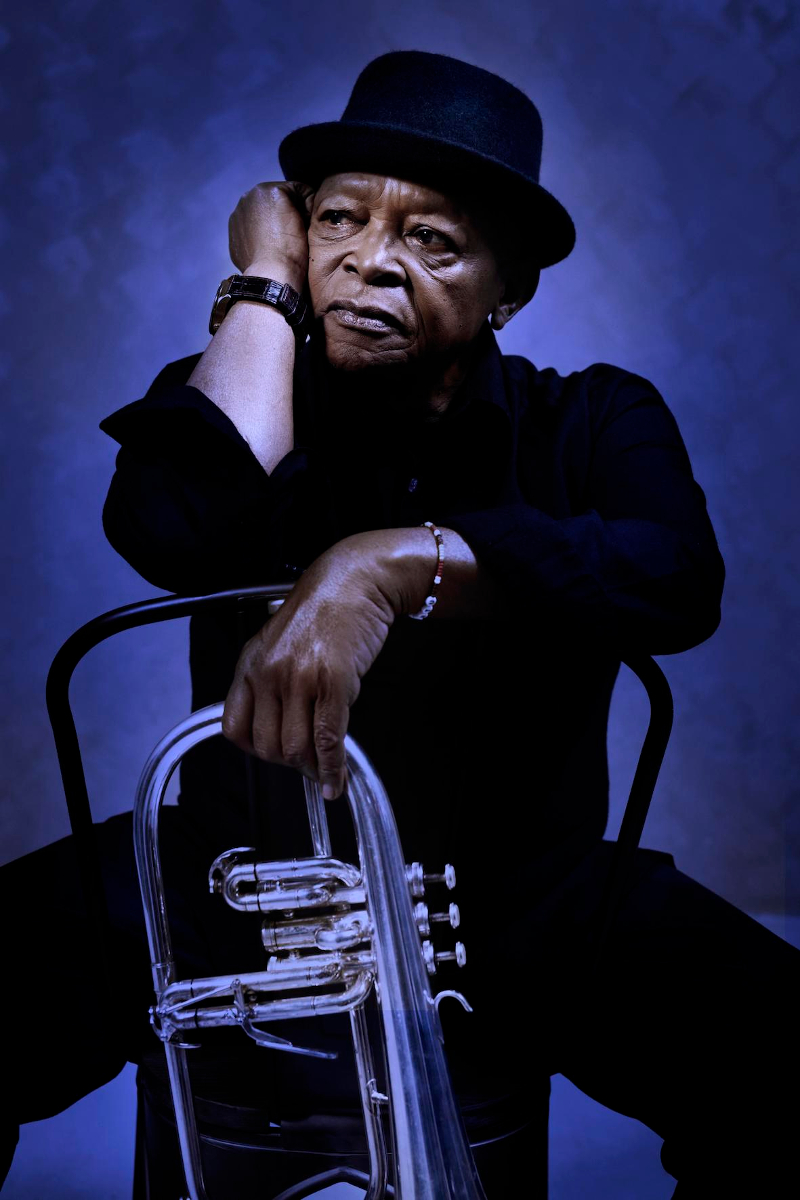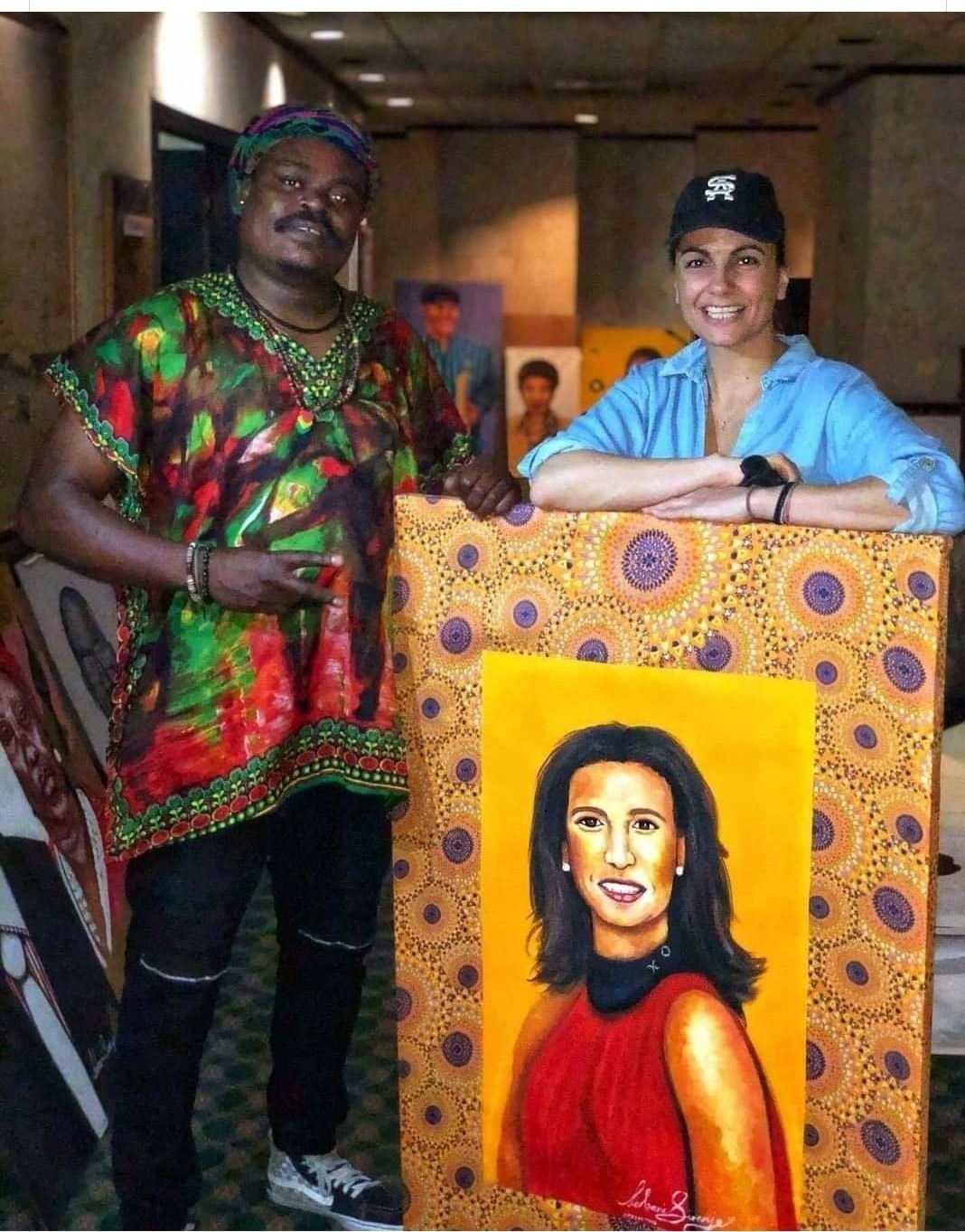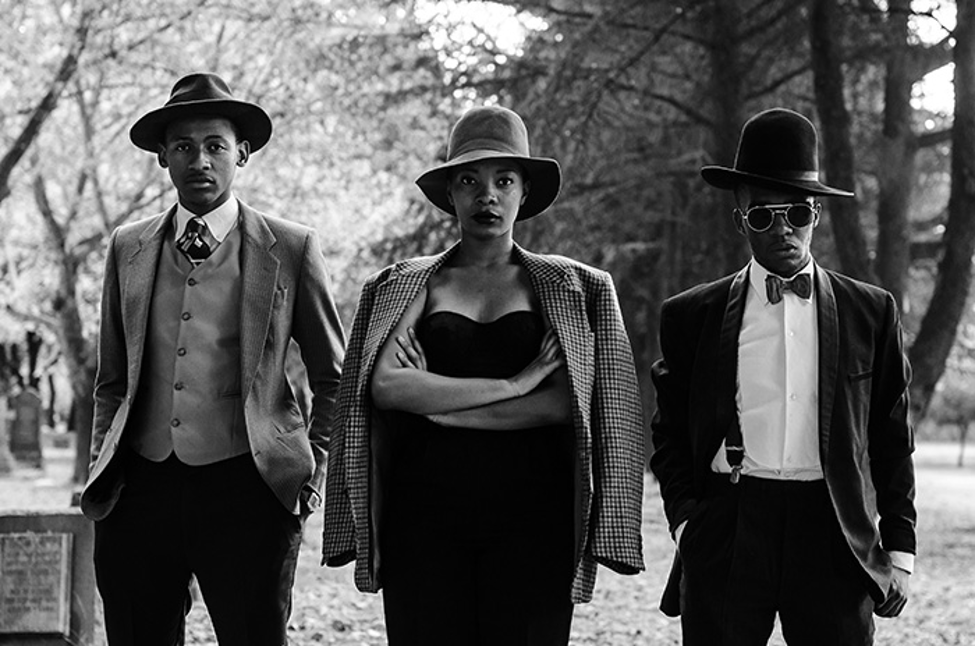It is the 2020s in unfriendly and disengaged Philipi, one of Cape Town’s youngest townships with no more than forty years of history. A visibly tired and sluggish Mama Priscilla (Nambitha Mpumlwana) who doubles as the show’s narrator and a domestic helper with over forty years of experience, opens up her house and life to the audience. She relays her life story and mentions how she now longs for home, the Eastern Cape, more than she ever has before. She is noticeably depleted by city and township living and feels both her work as a domestic helper in Cape Town’s suburbia and her barely improved life in the township have sucked the life out of her. She introduces one of her offspring, Azola (Luxolo Ndabeni), a Gen Z that lays half naked on an unmade bed, putting in screen-time on his cellphone. His room is littered with pieces of clothing that his mother ever so often walks in to gather and bin for laundry day. He is seemingly the sort of person whose mother cleans after. Elsewhere in the city enters Thabisa (Shalima Mkongi) an accented Gen Z with an equally cluttered room carpeted by her own dirty pieces of clothing. She is mightily opinionated though some might say, within reason. She is also lying on an unmade bed casually swiping left on her cellphone screen. The audience quickly learns she is on a dating app as she eventually swipes right on Azola’s profile. What follows is a rollercoaster of lives half-lived, burdened by the pressures of Gen Z life, love, sex, shattered dreams and hearts in the age of polyamory.
Discovered through the Market Theatre’s Play Development Programme under the mentorship of Artistic Director Greg Homann, Amaxelegu features an all-star cast in veteran actress Nambitha Mpumlwana, Luxolo Ndabeni and Shalima Mkongi to name a few. Under the incredible direction of celebrated author and director Qondisa James, the cast moves in mesmerizing fashion as it delivers this showcase. A combination of well-timed transitions and apposite lighting effortlessly place and immerse the agreeable audience in the lives of these characters, perhaps with a sense of familiarity too, for those who can relate to the complexities of present-day relationships. Amaxelegu is an indispensable reminder of the complexness of love, sex and umjolo in South Africa today. It is not simple, nor is it uncluttered or unadulterated. It is also a reminder of how precarious such love can be when left to its own devices.
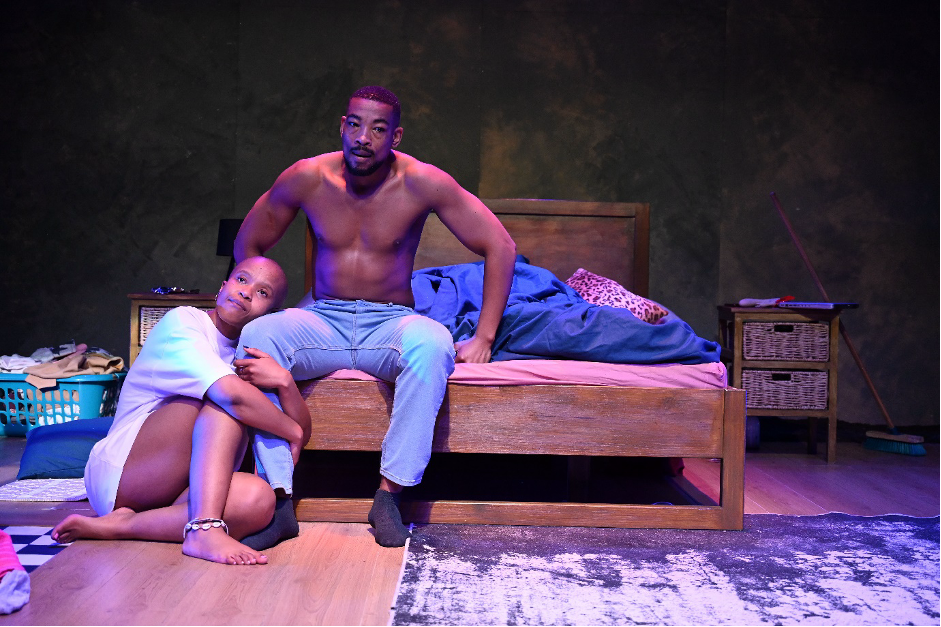
While there was a breakage of the fourth wall by the narrator in Nambitha Mpumlwana every so often, it did not take away or affect the momentum of the show. Transitions were however, affected by the delayed projection onto the wall, resulting in actors wanting to peek at the projection wall in order to time themselves accordingly. While it was without much effect, the show could have still done well without the narration. With its talented cast, remarkable direction and well thought out set and lighting, it stands well on its own and carries the story with very little need for elucidation.
Congratulations must however, go out to the team for carrying out this beautiful show in the manner that they do, particularly with the many difficult subjects it addresses. With the many successes that South Africa has borne witness to over the past few months, it would truly be unSouth African to miss this beautifully put together short run. Tickets are available from The Market Theatre Box Office and from Webtickets for between R120 and R200. The curtain will drop on the 25th August 2024.





